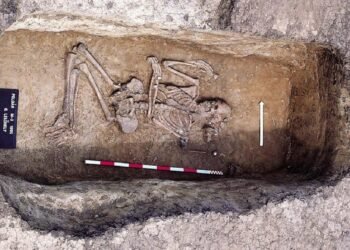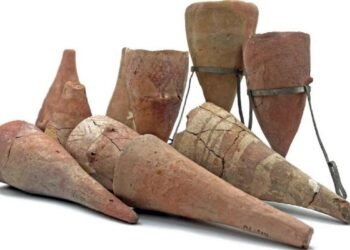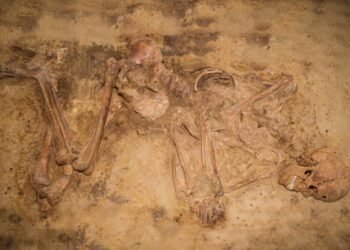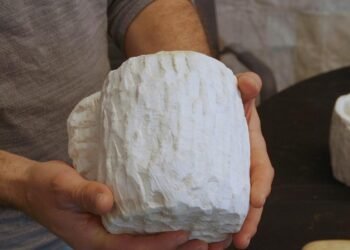Presumed skull fragments of the legendary 19th-century German composer, Ludwig van Beethoven, have been repatriated to Vienna, where he was laid to rest.

The fragments, believed to be the only surviving pieces of Beethoven’s skull, were donated to the Medical University of Vienna by US businessman Paul Kaufmann, who inherited them. These fragments include two larger pieces from the back of the head and the right side of the forehead.
Paul Kaufmann shared the intriguing story of discovering the fragments in a safety deposit box at a French bank in 1990. They were found in a small box with the scratched name “Beethoven,” and historical evidence suggests that Kaufmann’s great-great uncle, Austrian doctor Franz Romeo Seligmann, acquired them during exhumation of Beethoven’s body in 1863.
Ludwig van Beethoven, renowned for his exceptional piano, chamber, and symphonic works, died at the age of 56 in 1827, after enduring a life of battling unknown ailments, including increasing deafness in his later years.
Interestingly, Beethoven had explicitly requested that his body be studied after his death, which led to further interest in examining the fragments.
In 2005, US scientists conducted tests on Beethoven’s hair and the skull fragments, which indicated lead poisoning as the possible cause of his death. The source of the lead remains uncertain, but it might have come from a wine goblet made with the metal or from certain medical treatments prevalent in the 18th and 19th centuries that used heavy metals like lead and mercury.
More recently, researchers who sequenced Beethoven’s genome using authenticated hair samples suggested that liver failure or cirrhosis likely caused his death, possibly influenced by alcohol consumption.
As the skull fragments returned to Vienna for further study, Austrian coroner Christian Reiter emphasized their great value in understanding Beethoven’s medical mysteries.

Beethoven’s health has been a subject of much speculation, and his deteriorating hearing, especially in his later years, has been a focal point of numerous studies. The examination of these fragments could potentially provide valuable information about Beethoven’s illnesses and the circumstances surrounding his untimely death.
The Medical University of Vienna, where the fragments are now stored, aims to conduct comprehensive research to honor Beethoven’s wish for his body to be studied. As the investigations continue, the world eagerly awaits the potential revelation of new information about one of the most influential composers in the history of Western music.























